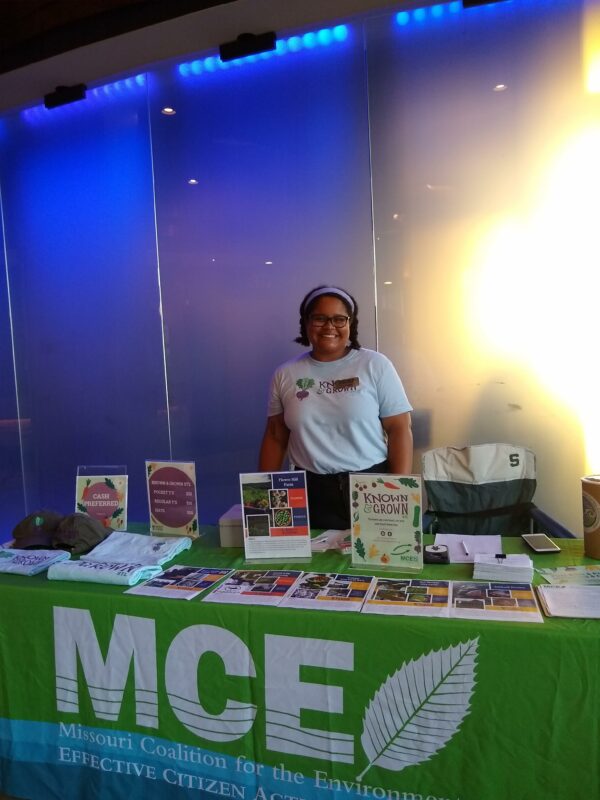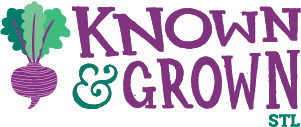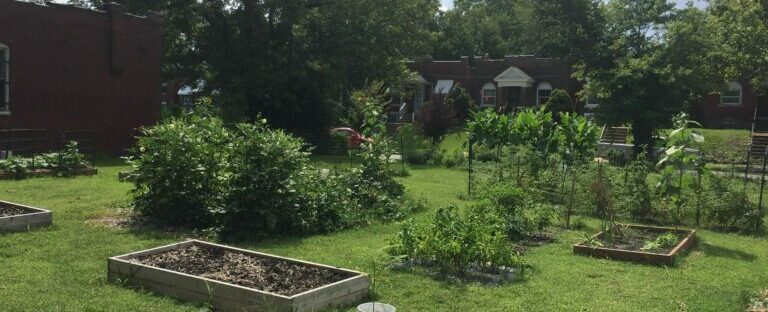On the morning of October 27th, Tyrean Lewis, founder and president of Heru Urban Farming and Garden, welcomed me to his garden on Maffitt Avenue with a warm smile, a firm handshake, and a quick tour of the property. What had once been an empty lot was now a beautifully rich garden. Even with winter fast approaching and the summer crops beginning to die off, bees fly around, neighborhood cats stop in for visits, and new plants begin to sprout up out of the ground.
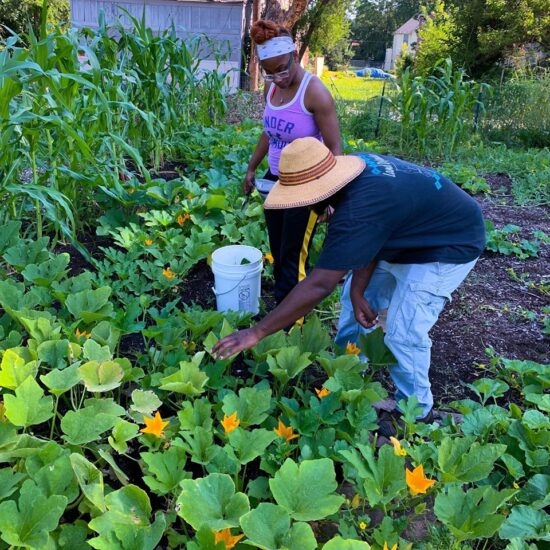
Lewis generously offers me a bag of produce that he calls “goodies,” stating that he has always been a ‘health geek.’ He explains that he got into farming because he was vegan and wanted non- GMO food, but couldn’t find any at his local grocery store. Lewis lives in a food apartheid neighborhood, which is different from a food desert because it is “deliberately set up like this. All you’ve got is gas stations on every corner that sell processed stuff, [you] don’t have access to affordable organic, non-GMO food.” Living in a food apartheid neighborhood was his impetus for beginning the garden.
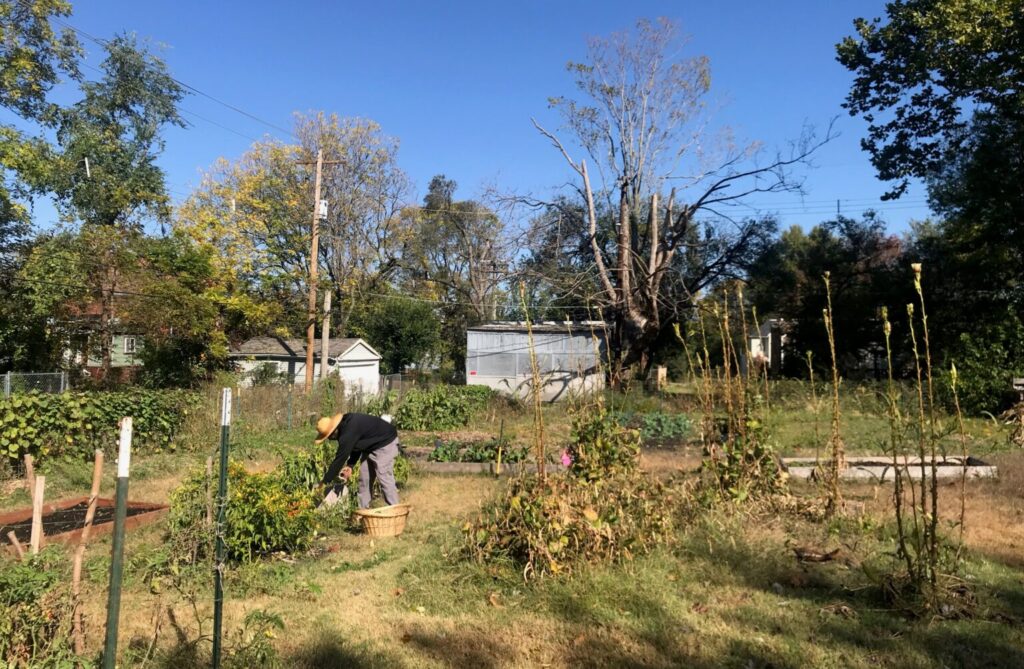
Lewis has two locations that, combined, make up a little less than half an acre of land. He says his garden was manifested as he sat on his front porch one morning, looking at the empty lot across the street and thinking, “I’d love to put a garden over there.”
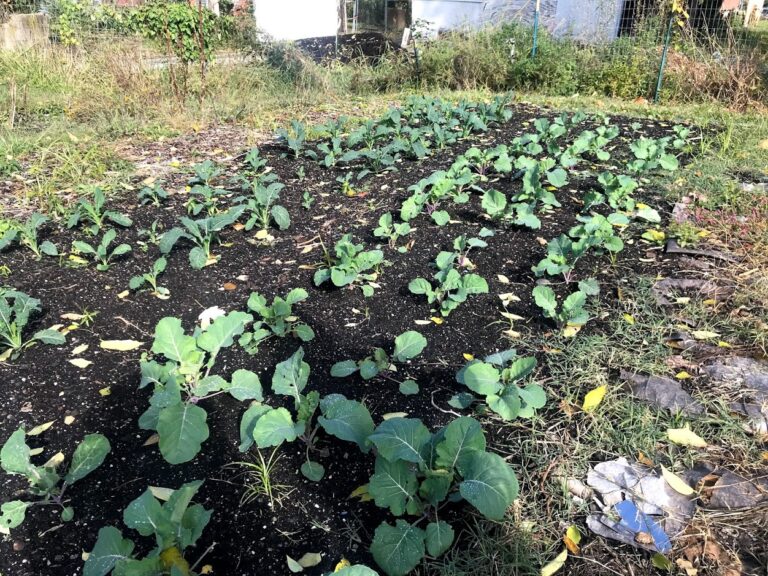
When asked why it is important to him that he uses sustainable farming practices he lightheartedly replies, “Well, you said it right there- sustainable. It’s harder work because you have to pick the weeds. And I guess, when thinking about money, [people] want to do it fast, easy, and cheap. But I’ve gotta sustain people behind me. If I’m teaching them sustainable practices, then it’ll keep going and we can get away from all of these harmful [practices].”
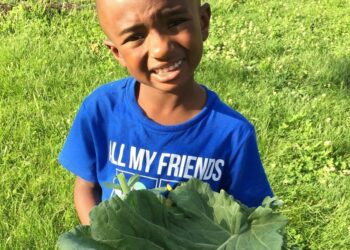
According to some of his neighbors, Lewis’ garden has led to a greater sense of community. “The community is love,” he explains. The elderly have been helping him from the start. One neighbor, in particular, was extremely influential to Lewis. He talks about Mr. Jenkins, who lived up the street and passed away this past summer. “He was the first one to criticize me and help me,” he reminisces. “He was like a father figure to me. I’ve gotta pay homage to him. He’s an ancestor now.”
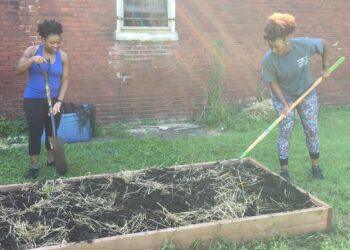
He expresses that this year he has seen an influx of kids becoming more involved in the garden, as well. “I do learning sessions. They come over and I teach them things like why it’s important to grow [food], how to prepare it, why choose organic over non-organic.” Lewis’ passion for educating his community members and providing them healthy food manifested as a result of knowing and experiencing the benefits of healthy eating.
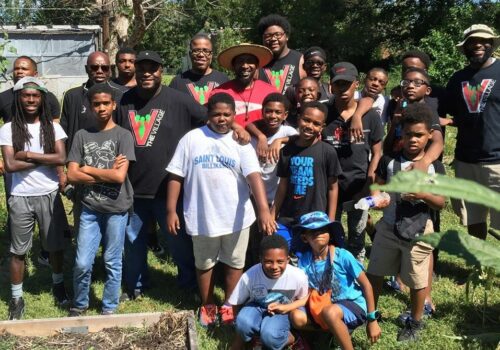
When asked what Lewis wants people to know about farming, he responds, “You know what you eat. There’s just a difference in biting into a tomato from a garden that you know is organic. There’s a totally different taste. Lewis explains that his garden has created a whole ecosystem that wasn’t there before, exclaiming, “I haven’t seen a lightning bug in over five years until last year. There are big grasshoppers that spin like a torpedo. I’ve never seen anything like that!”
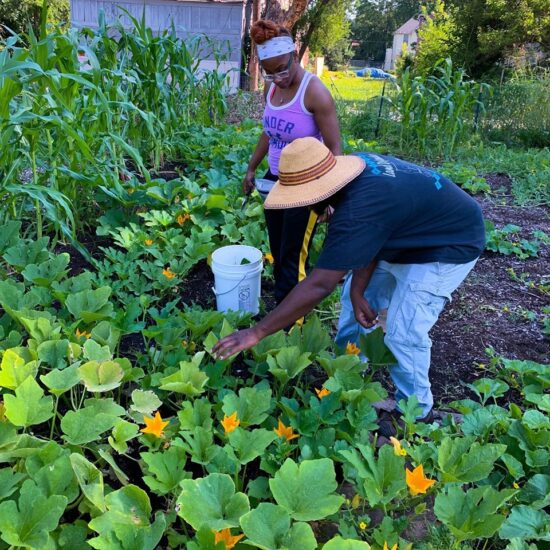
In regards to farming itself, he describes it as therapeutic and spiritual. He talks about how he blessed the land to summon positive energy from his ancestors, who were also farmers. “My great uncle was a farmer down in Texas. He created a co-op of over fifty farmers in the 50s and 60s. Also, he won first place in the state fair for his corn, purple hull peas, and watermelon. That’s the stuff that I’m good at growing. And I didn’t know that until after I started [the garden] over here. My great-grandma used to farm her backyard, too. It’s in my bloodline. It’s what I’m supposed to do.”
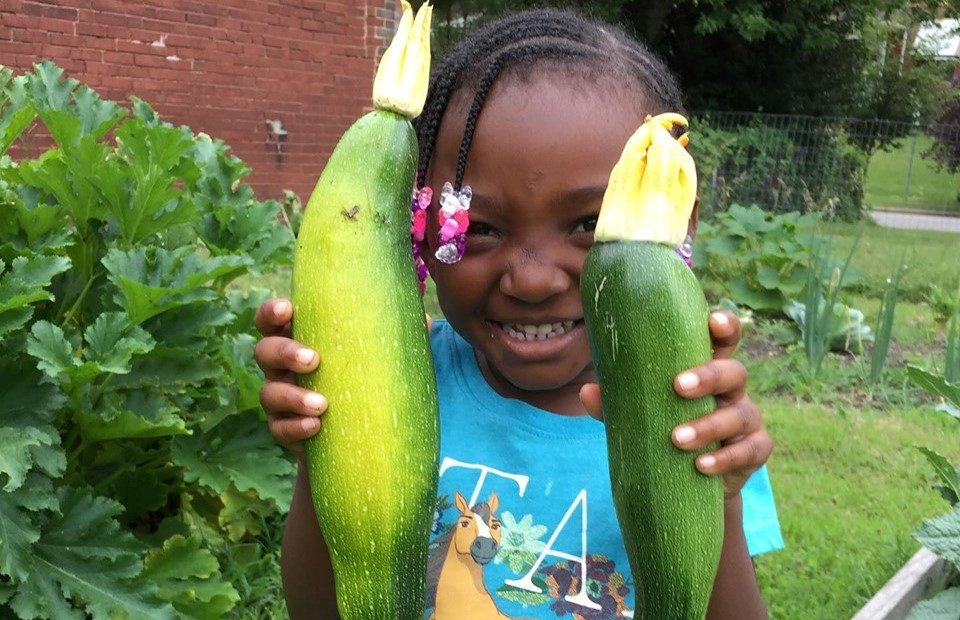
Looking towards the future, Lewis hopes to continue educating people about the benefits of sustainable farming and providing food for the people of St. Louis.
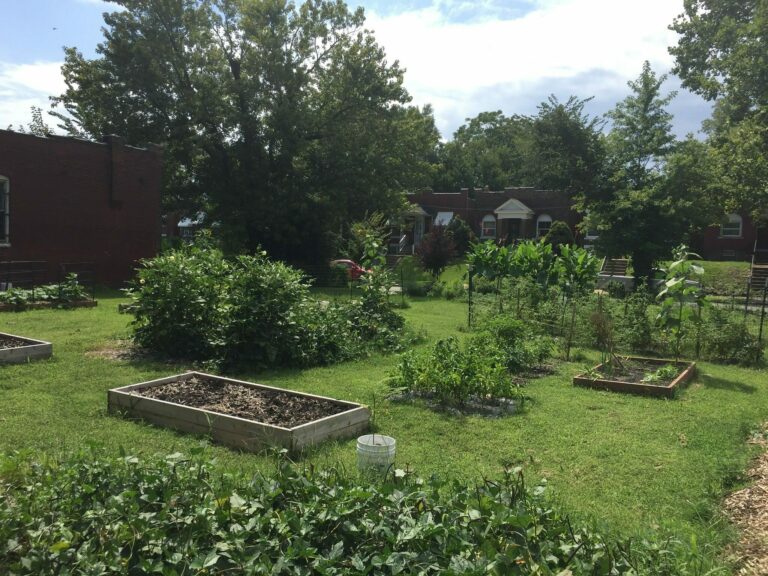
Written by Savannah Henderson, Known & Grown STL Marketing Intern, student at Washington University.
